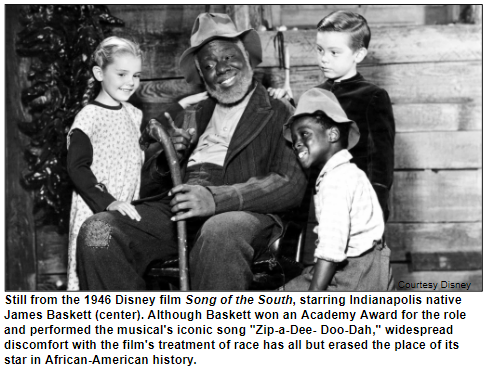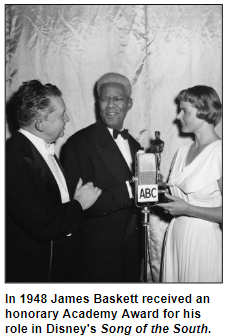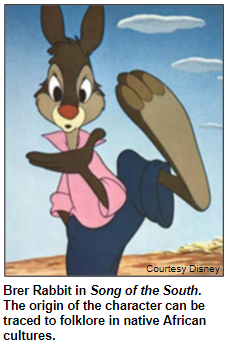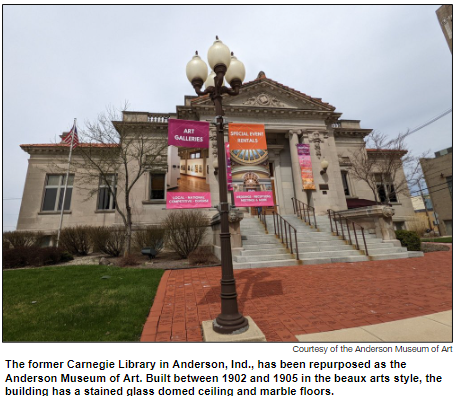Hoosier History Live Archives
Zip-a-Dee-Doo-Dah! The legacy of Indy native James Baskett
Click here to listen to the podcast.

Did you know that the first Black male actor to win an Oscar was from Indianapolis? Yes, we do claim Indy native James Baskett! In spite of being the first black male actor to win an Oscar - for a role in which he sang a song that also won an Academy Award - Baskett's place in the annals of African-American history seems to be largely forgotten.
 That's because the role for which Baskett won his honorary Oscar was that of Uncle Remus in the much maligned, now virtually banned film Song of the South. The Disney musical was a modest hit when it was released in 1946, but changing sensibilities about race over the past three quarters of a century have made the film toxic to the image-conscious studio. That's because the role for which Baskett won his honorary Oscar was that of Uncle Remus in the much maligned, now virtually banned film Song of the South. The Disney musical was a modest hit when it was released in 1946, but changing sensibilities about race over the past three quarters of a century have made the film toxic to the image-conscious studio.
Disney chose not to release the film for home viewing during the 1980s VCR boom; nor did they cash in on a DVD release in recent decades. With the 2019 advent of the Disney+ streaming service, Song of the South once again found itself locked out of the Magic Kingdom.
And not without good cause. Film critics and historians have condemned the film's sweetly nostalgic portrayal of the social hierarchy of Reconstruction-era South. As Guardian film blogger Xan Brooks put it recently, "the film trades in a dubious form of myth-making - implying that African-Americans stuck below the Mason-Dixon line were a cheerful bunch who liked nothing better than going fishing, spinning tall tales and looking after white folks' kids."
The very title of the film and its focus on song can be viewed as perpetuating a racist myth. As 19th century abolitionist Frederick Douglass - who himself escaped slavery - commented, the singing of enslaved people in the Southern United States was not evidence of their contentment or happiness.
 "It is impossible to conceive of a greater mistake," Douglass wrote. "Slaves sing most when they are most unhappy." "It is impossible to conceive of a greater mistake," Douglass wrote. "Slaves sing most when they are most unhappy."
But does the film deserve to be virtually banned, especially when a novel like Gone with the Wind and its 1939 film adaption - with all their racial stereotyping, glorification of white privilege and perpetuation of the myth of the "happy slave" - are still held up as classics?
Does Song of the South have anything to offer the modern viewer? Does the legacy of Hoosier James Baskett deserve to be reevaluated?
These are the questions explored by Hoosier History Live former associate producer and guest host Mick Armbruster in this encore of a show that first aired in January of 2020. Mick is joined in studio by two guests:
-
Film historian Eric Grayson, who specializes in the collection and preservation of vintage films;
-
and Ophelia Wellington, director of Freetown Village, a living history museum she founded in 1982 out of a desire to teach African-American history.
The show also looks into how Baskett's portrayal of the Uncle Remus character might teach us something about the role of folklore in African-American culture, and explore how the content of his tales - with their focus on the archetypal trickster Brer Rabbit - can be traced back to folklore found among native cultures in Africa.
And while the discussion may not leave listeners whistling "Zip-a-Dee-Doo-Dah", we hope it does give them an appreciation of the legacy of Hoosier James Baskett and a more nuanced understanding of the film he starred in.
Trivia prizes sought
Our "History Mystery" on air contest continues to be very popular! If you are an organization or business that would like to contribute tickets or admissions, please contact our host Nelson at nelson@hoosierhistorylive.org or our producer Molly at molly@hoosierhistorylive.org for instructions.
Prizes must fit in a standard business envelope. Hoosier History Live prefers to "snail mail" prizes to our trivia winners. And If prizes are time sensitive, they need to be offered well in advance of the event so that we can get them out in time.

We'd like to thank the following recent individual contributors who make this show possible. For a full list of contributors over the years, visit Support the Show on our website.
- Sandra Hurt
- Chuck and Karen Bragg
- Ken and Luan Marshall
- Tom Swenson
- Mike Freeland and Sharon Butsch Freeland
- Dr. William McNiece
- Serita Borgeas
- Richard Stroup in memory of Robert W. Stroup
- Bill Connor
- Ann Frick
- Charlotte Ottinger
- John and Florence Stanton
- Peggy Hollingsworth
Please tell our sponsors that you appreciate their support!
 Acknowledgements to WICR-FM, Fraizer Designs, Monomedia, Henri Pensis, Maddie Fisher, Austin Cook, and many other individuals and organizations. We are independently produced and are self-supporting through organizational sponsorship and through individual contribution, either online at our yellow button on our newsletter or website, or by U.S. mail. For organizational sponsorship, which includes logos, links, and voiced credits in our podcasts and in our show, please contact Molly Head at (317) 506-7164 or email her at molly@hoosierhistorylive.org. Acknowledgements to WICR-FM, Fraizer Designs, Monomedia, Henri Pensis, Maddie Fisher, Austin Cook, and many other individuals and organizations. We are independently produced and are self-supporting through organizational sponsorship and through individual contribution, either online at our yellow button on our newsletter or website, or by U.S. mail. For organizational sponsorship, which includes logos, links, and voiced credits in our podcasts and in our show, please contact Molly Head at (317) 506-7164 or email her at molly@hoosierhistorylive.org.

Your contributions help keep Hoosier History Live on the air, on the web, in your inbox, and in our ARCHIVES!
|
© 2024 Hoosier History Live. All rights reserved.
| 



 That's because the role for which Baskett won his honorary Oscar was that of
That's because the role for which Baskett won his honorary Oscar was that of  "It is impossible to conceive of a greater mistake," Douglass wrote. "Slaves sing most when they are most unhappy."
"It is impossible to conceive of a greater mistake," Douglass wrote. "Slaves sing most when they are most unhappy."
